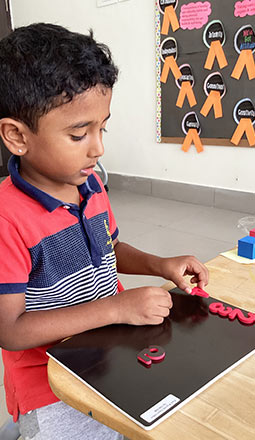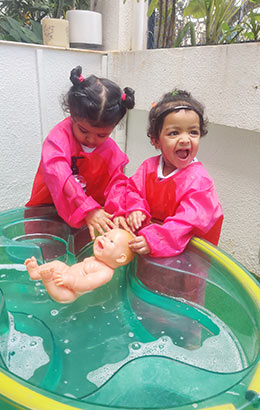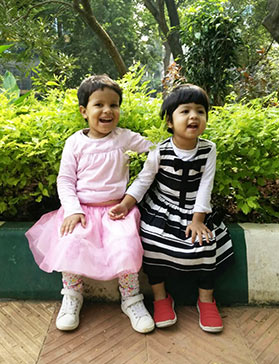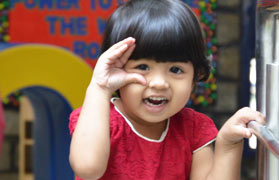Albert Einstein says “Education is not the learning of facts, but the training of minds to think.”
In this era where we expect a sub-second response from everyone around us- we must take a moment and realise the true power and potential of analysis and critical thinking to stay focused on our goals. Critical Thinking is the ability of an individual to analyse the way they think in a more rational way and present proofs for the ideas they have rather than just accepting personal thoughts as sufficient evidence. Education has changed immensely in recent years as we have access to all the facts and information at our fingertips! A simple Google search brings up multiple answers to any question we might have. The need of the hour is not retaining the information but being able to make sense of the information by critically examining it. Being able to evaluate in a logical way and create compelling arguments backed by evidence help children form a balanced view of things. Today education is not about going to universities and completing the courses. Children need to learn the new trends and innovations that are happening around the world. Teachers are responsible not just presenting classroom content but also adapting curriculum, providing feedback, and guiding real time discussions in the classrooms. Learning happens when we think, when we reflect and when we evaluate our experience with our current understanding. We cannot be learning without thinking. School readiness does not mean pushing a toddler behave like older children and do well in tests when they are in primary. We take the responsibility to make our children future ready with relevant experiential learning opportunities. Educators say that four skills that can never be replaced by Artificial Intelligence are –
- Empathy.
- Emotional intelligence.
- Creativity.
- Problem solving outside a code.
We aim to create a fresh, dynamic and bold approach to the traditional education system by developing a personalised learning environment for each child. We allow children to make mistakes and learn from them; we encourage children to ask questions ‘why’ and empower young minds to be imaginative and creative through modified pedagogy. We want to make sure that our children acquire these four skills and face all the challenges with open minds with the help of Critical Thinking which gives children the ability to think logically and solve problems in a more efficient and methodical way. Analysing and critical thinking are the foundation to develop all these above skills. The concept of critical thinking applies whenever we have a responsibility to make a decision. Critical thinking and analysis help us to take the right step forward. Building a culture of critical thinking is very important from young age. Children ask questions out of natural curiosity. In the era of continuous learning, inventing and reinventing ourselves from time to time can guarantee success if we upgrade ourselves. A child’s natural curiosity often converts the ideas to a workable and original solution after analysing them and helps lay the foundation for critical thinking. Critical thinking helps children to take in information, analyse it to decide the type of active engagement requires imagination and inquisitiveness.
Critical thinking is looking at the situations from the right perspective. It is a skill that predominant to success in life beyond school. Brain always has options when it comes to perception. Questions and critical thinking have a very close connection. Open ended questions can be a wonderful way of supporting children’s thinking. They are developmentally more appropriate as they force children to analyse deeply and stimulate thinking. When in dialogue, our goal is to ask thought provoking, challenging and stretching questions. We can ask questions that will lead to more questions and allow children to build theories. When children learn the things of their choice and are actively engaged in learning, they draw logical connections to evaluate the ideas effectively. The freedom to learn gives a child an intensified sense of ownership and elevates critical thinking which improves the ability to understand the views of others and express ideas efficiently. Allowing your child to navigate problems is an integral part to develop critical thinking skills in the long run.
Project-based learning is the great way to introduce new concepts, and ideas that motivated the students to learn and develop critical thinking skills.
Here are some guidelines to help children build a foundation for critical thinking:
- Ask questions that are open-ended and require answers that are more elaborate.
- Provide opportunities for independent play to challenge them and build children’s critical thinking.
- Don’t intervene immediately.
- Ask questions that are result based and help in revealing the personal traits of a child.
- Ask hypothetical queries to understand observation of the child.
- Pause and wait. Offer ample time to attempt a task, reflect, learn from experience and respond.
- Ask structured and organized questions to explain a procedure or experiment.
- Help children develop hypotheses with guided questions.
- Encourage children to think differently and help them hone their creative problem solving skills.
- Encourage pursuits of curiosity and help children to form and test theories, experiment and try to understand how the world works.
- Help children learn the skill of evaluating information by determining if the information is true, important and whether or not we should believe it, about where or who the information is coming from, how it relates to what they already know.
- Promote children’s interests. When children are deeply vested in a topic, they are more engaged and willing to experiment, expand their knowledge which brings a lot of opportunities for critical thinking,
When dealing with problems or conflicts, it is necessary to use critical thinking skills to understand the problem and come up with possible solutions. Our responsibility is to ncourage children to explore, ask questions, test their theories, think critically about results and think about changes they could make or things they could do differently.Learning to think critically is one of the most important skills that today’s children need for the future. In today’s rapidly changing world, children need to be able to do much more than repeat a list of facts; they need to be critical thinkers who can make sense of information, analyze, compare, contrast, make inferences, and generate higher order thinking skills.

